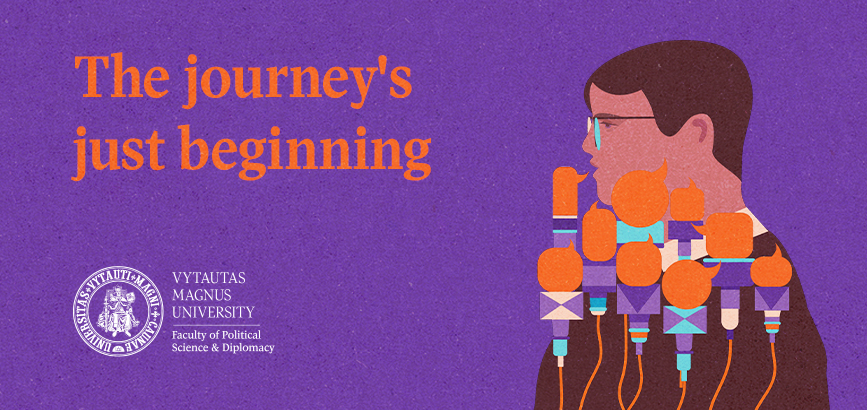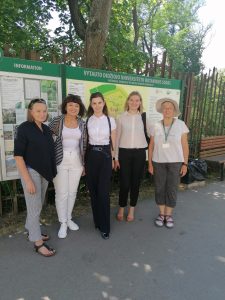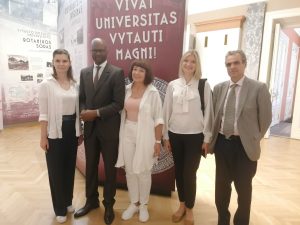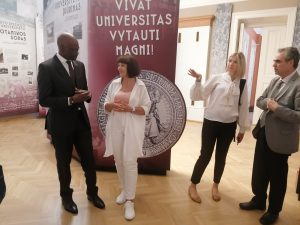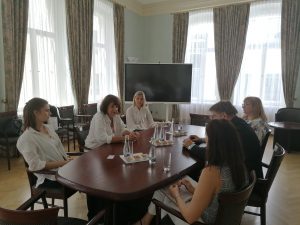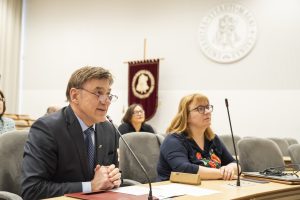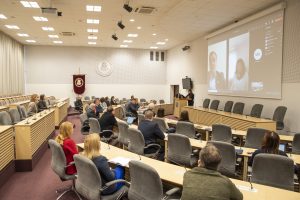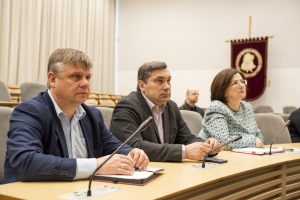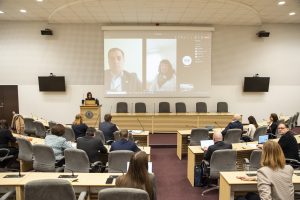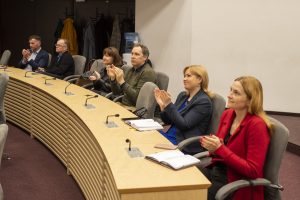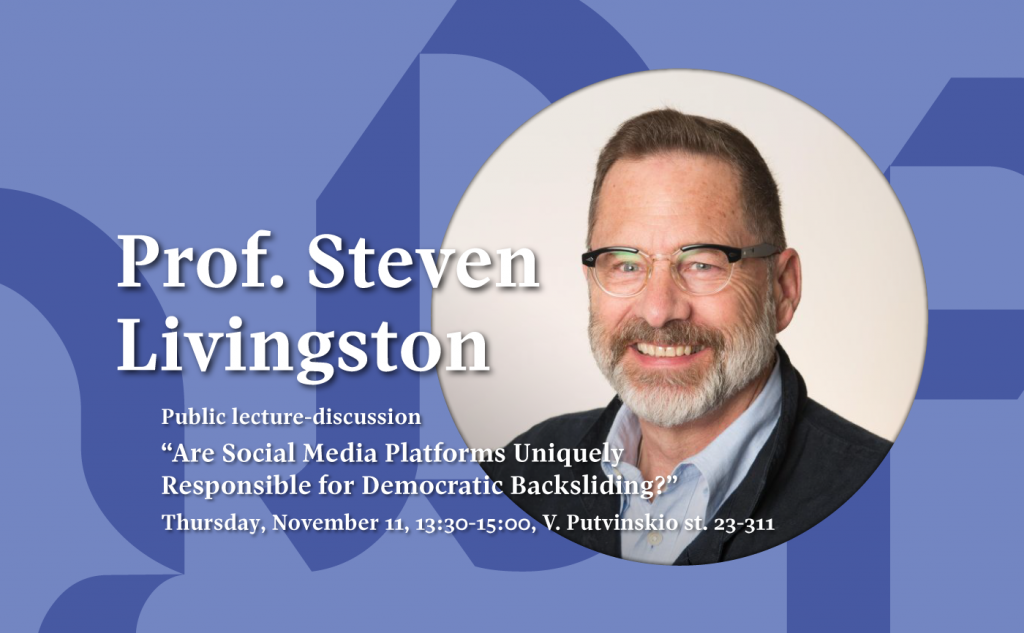Public lecture by prof. Hannu Nieminen – Why has the EU been late in regulating social media platforms?
Public lecture by prof. Hannu Nieminen – March 3, 13:00 o‘clock at Putvinskio st. 23, room 106.
Why has the EU been late in regulating social media platforms?
In 2021 and 2022, the European Union (EU) launched a series of proposals aimed at improved internet regulation, benefiting both European industries and services, as well as European consumers or internet users. These measures have been watched from around the globe because they can be seen as a first attempt to create a ‘meta-level’ regulatory environment for the digital economy that effectively challenges the domination of the Big Tech conglomerates of the US and China.
However, even if the new EU regulation proves effective, how effective can they be in challenging the fundamental dynamics of the internet and digital economy that the internet enables? I the lecture, I will discuss why the EU has been late in regulating social media platforms, which play a central role in the internet-based digital economy. I will base my argumentation on a critical reading of the history of the internet and its regulation from its early days to the 2020s.
The lecture is based on an article on the same title by Hannu Nieminen, University of Helsinki & Vytautas Magnus University, Claudia Padovani, University of Padova, and Helena Sousa, University of Minho, to be published in Javnost/The Public in spring 2023.
Documentary “Freedom on Fire: Ukraine’s Quest for Freedom” about the war in Ukraine
The U.S. Embassy in Lithuania together with Vytautas Magnus University (VMU) invites university community, Kaunas residents and guests to a free screening of documentary “Freedom on Fire: Ukraine’s Quest for Freedom”, on February 28, 11:15 a.m. at V. Putvinskio st. 23, room 106. The screening will be followed by a Q&A with film director Evgeny Afineesvky. The film is in Ukrainian and Russian languages with subtitles in English. The screening is hosted by the Faculty of Political Science and Diplomacy. The moderator of the screening is a doctoral student of the faculty, Ukrainian Dmytro Iavory, the discussant of the discussion with the audience and the director is prof. Gintautas Mažeikis.
Documentary “Freedom on Fire: Ukraine’s Quest for Freedom” tells the story of Russia’s aggression against Ukraine and takes a sweeping look at a humanitarian crisis, amplifying the views of children, mothers, soldiers, doctors, artists, volunteers, clergymen, and journalists who are transformed while witnessing ceaseless destruction and bloodshed. With harrowing images being released ever since February 24 of 2022 and exclusive interviews with people affected by the ongoing war, “Freedom on Fire: Ukraine’s Quest for Freedom” reveals how the spirit of unity strengthens morale even amid the country’s darkest hours and challenges the international community to oppose tyranny together.
“By releasing the film now, I hope I can bring immediate clarity to viewers confused by the deliberate misinformation campaign surrounding the current events in Ukraine.” says Afineesvky. According to the director, one of his goals was to detail the struggles associated with reporting from the front lines of a warzone. The film whose one of the main characters is journalist Natalija Nagorna, “is dedicated to storytellers who risk danger to give voices to the voiceless.”
To convey a comprehensive narrative of the war, Afineevsky structured the film around personal testimonies by Ukrainians whose lives have changed dramatically since 2014 – “I wanted to show how war affects people in different parts of the country.” However, his biggest goal is to call the world to action. Afineesvky hopes that Ukraine and its allies will continue fighting together against threats to freedom of speech and expression, human rights, freedom, and democracy. Featuring narration from Oscar-winning Dame Helen Mirren, the film has received awards at the Hamptons International Film Festival, SCAD Savannah Film Festival, and Mill Valley Film Festival, and received the Kineo Award and a nomination at the Stockholm Film Festival.
Russian-born American director Evgeny Afineesvky has previously visited Lithuanian with his Oscar-nominated documentary “Winter on Fire: Ukraine’s Quest for Freedom”. Afineesvky’s films have premiered at the Venice International Film Festival, Telluride International Film Festival, Toronto International Film Festival, Rome International Film Festival and Sundance Film Festival, and his work nominated for the Oscars, Emmys, and the PGA Awards.
The screening at VMU is an exclusive opportunity to see the 2022-made film which premiered at the Toronto International and Venice Film Festivals, and received the Kineo Award.
Mariupol State University Representatives Visit in VMU
From 1st to 9th of July 2022, VMU partner, the delegation of Mariupol State University represented by Vice-Rector for Research and Teaching (International Relations), Professor Olena Pavlenko, Dean of the Faculty of Foreign Languages, Associate Professor Hanna Trifonova, Associate Professor of the Department of Economics and International Economic Relations Olga Bezzubchenko visited Vytautas Magnus University in Kaunas (Lithuania).
During the visit, members of delegation from MSU met with representatives of the Institutes of Foreign Languages and Innovative Studies, the Faculty of Economics and Management, the Faculty of Humanities and held a number of meetings with the University management. During the meeting, VMU’s Rector Juozas Augutis expressed support for Ukrainian researchers and students and highlighted all possible ways of cooperation regarding students and staff mobility, designing double degree programs, free study programs for students, technical support programs, etc.
MSU delegation also visited VMU Botanical Garden in Kaunas, where multifunctional botanical garden consists of three departments: Science, Expositions and Collections, and Service and Education.
Ukrainian colleagues find it interesting to get acquainted with the experience of the partner university in organizing the process of teaching foreign languages to the trainees involved in the educational process. Colleagues talked about the possibilities of attending courses in 30 modern and classical languages, with native speakers and language practitioners engaged to provide teaching and learning focused on the communicative competence in business, professional terminology in oral and written speech as well as on lexical and normative base of international documents. The thing that also awoke our special curiosity appears to be the practice of forming a foreign language study group where not only students, but also teachers and members of the public who want to improve their proficiency in any foreign language can be enrolled.
The University created a fund to help students who suffered from Russian aggression.
The delegation from Mariupol State University also held a meeting with the Director of the UNESCO International Bureau of Education (IBE-UNESCO) Yao Ydo, IBE-UNESCO senior expert Renato Opertti, who visited Vytautas Magnus University and discussed with their Ukrainian colleagues all possible ways of support the university community.
The representatives of the two higher education institutions showed a deep interest in cooperation and offered a plan to further implement their joint initiatives.
The delegation from Mariupol State university visited Vytautas Magnus university within the framework of Erasmus+ program. Aistė Žemaitytė, Vice Dean of the Faculty of Political Science and Diplomacy organized the guests’ first visit to Kaunas. MSU is an associate partner of the T4E alliance. Meeting with Ineta Dabašinskienė, Institutional Coordinator of Transform4Europe Alliance allowed to discuss further work plans on alliance.
- rbt
- rbt
- rbt
VMU signs Memorandum of Understanding with Mariupol University
 During the meeting of the Rectorate of VMU on 4 May, The Rector of Vytautas Magnus University (VMU) Prof. Juozas Augutis signed a Memorandum of Understanding with The Rector of Mariupol State University (MSU) (Ukraine) Prof. Mykola Trofymenko. With this memorandum, universities undertake to carry out joint study programmes, including double diplomas, to develop international projects, to share scientific material and good academic experience, to conduct bilateral exchanges of academic staff and students.
During the meeting of the Rectorate of VMU on 4 May, The Rector of Vytautas Magnus University (VMU) Prof. Juozas Augutis signed a Memorandum of Understanding with The Rector of Mariupol State University (MSU) (Ukraine) Prof. Mykola Trofymenko. With this memorandum, universities undertake to carry out joint study programmes, including double diplomas, to develop international projects, to share scientific material and good academic experience, to conduct bilateral exchanges of academic staff and students.
MSU Rector Prof. M. Trofymenko, who participated remotely in the signing of the Memorandum of Understanding with VMU, thanked the Rector of VMU and the university community for their expressed willingness to cooperate with this Ukrainian higher education institution. “I am very happy that today we will officially give meaning to our cooperation. I hope this will be a great start to something new. You know exactly what is happening in our country and city. After weeks of hellish siege of Mariupol, our colleagues and students finally have the opportunity to evacuate a city that has been completely destroyed. Currently, our university is located in Kyiv, the capital of Ukraine. We are grateful that you have agreed to cooperate, build new connections and participate in projects in the future. You were the first to contact the representatives of our higher education institution as soon as the war started, to take care of how your colleagues were doing here in Ukraine, with whom you worked on joint international projects,” the rector of Mariupol State University expressed his gratitude to VMU.
Prof. M. Trofymenko stressed that this Memorandum of Understanding with VMU will contribute to the restoration of Mariupol State University in Kyiv, the capital of Ukraine, where the university’s academic community is currently concentrated. “Here in Kyiv, we will have to rebuild our university anew based on the best international examples, such as VMU, one of the best universities in Lithuania and Europe. I’ve been to Kaunas before. At your university, I was particularly impressed by the platforms and practices used for distance learning. I believe that this MoU will be the beginning of many new and productive projects. Thank you for your help and support for Ukraine. I hope that this cooperation will contribute to our country’s victory in the war against Russia at the information and educational level,” prof. M. Trofymenko thanked.
 MSU Vice-Rector Prof. Olena Pavlenko also participated in the signing of the Memorandum of Understanding at the meeting remotely, together with Rector Prof. M. Trofymenko, who thanked VMU for the continued cooperation between VMU and MSU, which started back in 2017, and the attention our university paid to their university at this difficult time.
MSU Vice-Rector Prof. Olena Pavlenko also participated in the signing of the Memorandum of Understanding at the meeting remotely, together with Rector Prof. M. Trofymenko, who thanked VMU for the continued cooperation between VMU and MSU, which started back in 2017, and the attention our university paid to their university at this difficult time.
MSU is a valued partner of VMU Faculty of Political Science and Diplomacy, with which the faculty carried out a project Rethinking Regional Studies: the Baltic-Black Sea Connection. “Working together with Mariupol State University has created great scientific potential for further work. At the beginning of the war in Ukraine, I was very concerned about the situation of my colleagues in Mariupol. Although the hostilities in Ukraine, and especially in their city, paralyzed the normal life of the citizens, they were surprisingly quick to show their strength and dedication to work and to resume the work of the university on April 18, at a distance from Kyiv. These are people, patriots of their city, country, university, with whom it is an honor to work with” says the Vice dean of the Faculty of Political Science and Diplomacy Aistė Žemaitytė.
At the time of signing the agreement, VMU Rector Prof. J. Augutis also expressed his support for Ukraine, which is fighting against the Russian occupiers and defending the sovereignty of the whole of Europe. “It is an honor to sign such a document. I think this is a great start to the collaboration between our universities. We have many plans for the future. Be brave and good luck,” the VMU Rector wished his colleagues in Ukraine.
Public lectures by foreign partners of the faculty
The Faculty of Political Science and Diplomacy invites to public lectures by foreign partners of the faculty. During Erasmus Teaching Exchange Week ( May 2 – 5) lecturers from Ukraine, Bosnia and Herzegovina, Japan, Mexico and Romania will give lectures at the faculty:
| Visiting professor | University | Country | Lecture | Data | Time | Place |
| Dr. Ruth Elizabeth Prado Perez | ITESO, Universidad Jesuita de Guadalajara | Mexico | The role of criminal violence on forced migration from the Northern countries of Central America. | 2022 05 02 | 15:00-16:30 | Putvinskio str. 23-311 |
| US response to immigration | 2022 05 06 | 11:15-12:45 | Gedimino str. 44-303 | |||
| Life on the Mexico-US border, life after crossing | 2022 05 03 | 10:00-11:00 | Putvinskio str 23-312 | |||
| Assoc. prof. Ishimatsu Hiroyuki | Saga University | Japan | Japan-EU relations | 2022 05 05 | 11:00-12:00 | Gedimino str. 44 – 303 |
| Japanese social policy of foreign workers under the trend of low birth rate and high aging population | 2022 05 03 | 11:15-12:45 | Putvinskio str. 23 -312 | |||
| Prof. Lejla Ramic Mesihovic | University of Sarajevo | Bosnia and Hercegovina | Prospects for European integration of the Western Balkan countries and the relations of these countries with the EU | 2022 05 02 | 16:00-17:30 | Putvinskis str. 23-106 |
| Dr. Jahja Muhasilovic | University of Sarajevo | Bosnia and Hercegovina | Security and conflicts in the Balkan region | 2022 05 06 | 16:00-18:00 | Putvinskis str. 23 – 106 |
| Dr. Iryna Panina | Vasyl’ Stus Donetsk National University | Ukraine | Ukraine-EU relations. | 2022 05 02 | 16:00-17:30 | Putvinskis str. 23-106 |
| Assoc. prof. Marianna Gladysh | Ivan Franko National University of Lviv | Ukraine | New security architecture in Europe | 2022 05 06 | 17:00-18:30 | S. Daukanto str. 28 – 101 |
| Regional alliances – strengthening or weaking European security | 2022 05 05 | 11:15-12:45 | S.Daukanto g. 28, Small Hall | |||
| Dr. Natalia Virginia Cuglesan | Universității Babeș-Bolyai din Cluj-Napoca. | Romania | Romania’s membership of the European Union: achievements and their academic evaluations. EU enlargement and the Europeanisation of Romanian public administration | 2022 05 03 | 17:30-19:00 | Putvinskio str. 23-312 |
Online Discussion with the Scientists from Ukraine: The Role of Universities in Wartime
Vytautas Magnus University (VMU) Faculty of Political Science and Diplomacy community highly condemns Putin’s actions and supports Ukrainian colleagues. VMU stands in solidarity with Ukraine and terminates all cooperation with Russian and Belarusian partners.
On Wednesday, 23 March at 15:00 (Vilnius time) public online discussion with Ukrainian scientists will be organised: The role of universities in wartime. What are the practices and how is this happening in Ukraine now
Subtopics:
- The Behavior of Universities during Revolutions and War: The European Experience
- Why is it necessary to save the nation’s elite?
- How universities are part of European and global cooperation and what solidarity is needed during war.
- EU perspective for Ukraine/NATO or neutrality
Participants:
Prof. Mykola Trofymenko, Mariupol State University, Mariupol, Ukraine
Assoc. prof. Sergei Pakhomenko, Mariupol State University, Mariupol, Ukraine
Prof. Maxim Lepskiy, Zaporizhzhya National University, Zaporizhzhya, Ukraine
Dr. Denys Kuzmyn, Odesa I. I. Mechnikov National University, Odesa, Ukraine
Assoc. prof. Marianna Hladysh, Ivan Franko National University of Lviv; Lviv, Ukraine
Assoc. prof. Bohdan Cherkas, Taras Shevchenko National University of Kyiv; Kyiv, Ukraine
Discussion moderator prof. Gintautas Mažeikis, The Head of Social and Political Critique Center, Vytautas Magnus University, Kaunas, Lithuania.
Discussion organisator Aistė Žemaitytė, Vice Dean of the Faculty of Political Science and Diplomacy, Vytautas Magnus University, Kaunas, Lithuania.
Language of discussion – English.
Zoom link and login of discussion:
Meeting ID: 838 3047 4233
Passcode: 872768
Her Excellency the Ambassador of Slovenia Božena Forštnarič Boroje lecture
Her Excellency the Ambassador of Slovenia Božena Forštnarič Boroje will give a lecture on the Slovenian Presidency of the EU Council in 2021.
Tuesday, November 16, 11:30 – 12:30, on MS Teams platform
Ambassador Božena Forštnarič Boroje headed the Human Rights Department at the Ministry of Foreign Affairs (2016-2018) prior her current appointment to Poland. She began her diplomatic carrier within the Ministry of Foreign Affairs in 2004, where she also served as a head of International Law Department (2015), Deputy Head of Mission at the Embassy of the Republic of Slovenia in Ankara (2012-2015) and Deputy Head of Mission at the Embassy of the Republic of Slovenia in Canberra (2005-2009). Prior joining the Ministry of Foreign Affairs, she worked at the Office of the Prime Minister (2003-2004) and at the Ministry of Labour, Family and Social Affairs (1999-2002).
Ambassador Forštnarič Boroje holds a university and master degree in law from the Law Faculty of the University of Ljubljana. She speaks English, German and Croatian/Serbian.
Ambassador Božena Forštnarič Boroje presented credentials to the Polish President Andrzej Duda on 12 September 2018.
Embassy of the Republic of Slovenia in Poland is non-residentially covering also Republic of Lithuania, Republic of Estonia and Republic of Latvia. Ambassador Božena Forštnarič Boroje presented credentials to President of Republic of Lithuania Dalia Grybauskaitė on 24 October 2018, to President of Republic of Estonia Kersti Kaljulaid on 8 November 2018 and to President of Republic of Latvia Raimonds Vējonis on 21 November 2018.
Prof. Steven Livingston public lecture-discussion “Are Social Media Platforms Uniquely Responsible for Democratic Backsliding?”
Since the 2016 Brexit referendum and the US presidential election, there’s been an explosion of books and articles hoping to explain the decline of liberal democracy. One common explanation involves social media algorithms. The priorities of the social media behemoths are shaped not by a sense of collective civic responsibility or by a regard for democratic principles but by an insatiable appetite for financial growth and domination. The astronomical sums of revenue generated by the platforms rest on a business model that Shoshana Zuboff likens to a manufacturing process. She states that surveillance capitalism “unilaterally claims human experience as free raw material for translation into behavioral data [which] are declared as a proprietary behavioral surplus, fed into advanced manufacturing processes known as ‘machine intelligence’, and fabricated into prediction products that anticipate what you will do now, soon, and later.” To extract behavioral surplus, user attention must remain fixed on content, and nothing holds attention like fear and loathing. Users are in this way taken progressively deeper into a digital world of conspiracy theories and hate. Livingston argues that this explanation of democratic decline is accurate, but only to a point. It fails in its overemphasis of technology as a sole causal factor. Much of the “computational propaganda” literature to appear since 2016 is ahistorical and inattentive to alternative explanations. It fails to consider the social, political, and economic context that influences the reach of algorithmic amplification of extremist content. Yet policy and law makers in the United States and Europe tend to focus on platform regulation, on the technologies themselves, when searching for solutions. The concern here is that in diagnosing the problem in technical terms, solutions will fall short. Furthermore, “content regulation” by Western democracies might offer more authoritarian states a way to justify far more draconian regulatory controls.
Open lecture: Strategic autonomy, European military and other initiatives – what is the future of EU foreign and security policy?
Faculty of Political Science and Diplomacy together with Faculty of Humanities invites to an open lecture/discussion with Nicolas Tenzer, 20 10 2021, V. Putvinskis str. 23 – 310: Strategic autonomy, European military and other initiatives – what is the future of EU foreign and security policy?
Discussions about potential European strategic autonomy have been gaining momentum in recent years and especially intensified after the trilateral AUKUS agreement between the United States of America, the United Kingdom and Australia. Is the European Army just a beautiful idea or an inevitable future scenario? How does the US – Chinese rivalry impact the EU’s foreign and security policy? We will try to find an answer to these and many other questions in an open lecture/discussion with French political analyst, academic, publicist and editor – Nicolas Tenzer.
Nicolas Tenzer – graduated from École normale supérieure, Sciences-Po Paris and École nationale d’administration (ENA), he has a Master degree in History. Former adviser to the French Minister of Economy and Finance, he was investigator at the Accounting Court and Head of Department in Strategic Planning Commission (Prime Minister’s Office). He served as head of a special mission on international issues for the French government. He is the co-founder, former chairman and CEO, and now honorary chairman of Initiative for the Development of French Expertise Abroad in Europe and Worldwide (IDEFIE). He has been member of the board, CFO, and then executive president of Aspen Institute France (2010-2015). He wrote three official reports for the French government: The New Challenges for the Public Service: How to Address Them?; A New Organization for European and International Policies in France; and International Expertise: The New Heart of Diplomacy and Development Policy in the 21st Century: Tools for a French Strategy of Influence.
Chairman of the Center for Studies and Research on Political Decision (CERAP) and the publisher of the review Le Banquet (1992-2015), he is guest professor at Paris School of International Affairs (PSIA, Sciences-Po), ENA Paris, and France’s Institute for Advanced Studies on National Defence.
Since May 2021, he is the publisher of Desk Russie, a bi-monthly newsletter on Russia and countries of the former Soviet space.
He has been visiting professor at foreign universities (U.S., Canada, Serbia, South Korea, Poland, etc.) and guest speaker at many international conferences on security and international issues. He is the author of 22 books, including Political Philosophy; The World in 2030. The Rule and the Disorder; and France Needs Others, and lastly Resisting Despair in Confrontational Times (with R. Jahanbegloo, Har-Anand Publications, 2019). Most of his recent pieces deal with European and security issues, Ukraine, Russia, Middle-East, and US foreign policy. He regularly appears in leading newspapers worldwide and TV and radio talk-shows.
He is the owner of the leading strategy blog, launched in June 2021, Tenzer Strategics https://tenzerstrategics.substack.com/
On-line Discussion on EU Public Diplomacy and Media Narratives
The Faculty of Political Science & Diplomacy organized the on-line discussion on EU Public diplomacy and Media Narratives. During the workshop the main results of Jean Monnet Project Youth Opinion and Opportunities for EU Public Diplomacy: Youth Narratives and Perceptions of the EU and EU-Ukraine Relations in Ukraine and the three Baltic States (E-YOUTH) were presented.
Workshop programme:
Ukraine through a Baltic Lens and Images of the Baltic States in the Eyes of the Ukrainian Youth and Media
The key presenter and project leader Prof. Natalia Chaban is a Jean Monnet Chair and Director of Public Diplomacy and Political Communication Forum, Department of Media and Communication, University of Canterbury, New Zealand.
Ukrainian Youth on Ukraine-Baltic Relations. Results of the Survey.
Dr. Iana Sabatovych, Public Diplomacy and Political Communication Forum, University of Canterbury, New Zealand
Lithuanian Youth Perceptions of Media Narratives on Ukraine and EU: the Evidence from 2017 and 2020.
Dr. Gintaras Šumskas, assistant professor at Vytautas Magnus University and the research director at Vilnius Institute of Policy Analysis.




